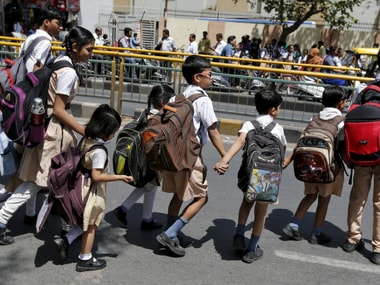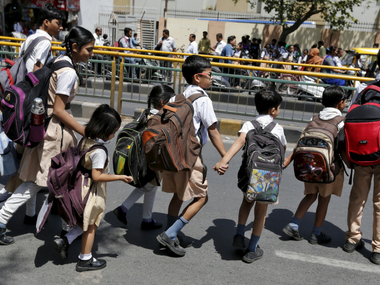Kerala’s education minister C Raveendranath told the state Assembly earlier this week that around 124,000 students in the state had not reported either caste or religious affiliation in their admission forms for 2017-18. Of them, around 123,000 were in classes I to X, while the rest were higher secondary students. Before getting to the larger point, it must be noted that a significant number of these students must have enrolled, say, around a decade back, which indicates that changing attitudes to religion and caste go back at least that far; and, though the total number works out to about 3 percent of all school students, in absolute terms this is a positive development. It should also be noted that this phenomenon need not be automatically tied to the fact that Kerala has been the most literate state in India for decades. Literacy, formal or substantive, and educational attainments have no direct proportionality with social attitudes. The web of caste and religious consciousness (and considerations) constrain the rich and ‘educated’ as much as they do the poor and poorly educated. Anyone who lives in this country and has his or her eyes and ears open will attest to this. Attitudes to caste and religion are shaped only partly by formal education, or in the sphere of formal education. A huge role in shaping them is played by the family, the neighbourhood – the social context. Political and social education also has a big role to play through other institutions. It must, then, be concluded, that there is some trajectory of a broad social and political change involving informal agencies that has made this possible. [caption id=“attachment_4410793” align=“alignleft” width=“380”]  File image of school students. Representational image. Reuters[/caption] It would be useful to note the contrast with West Bengal, so often hyphenated with Kerala. In Bengal, caste and religion have not played a major role in politics thus far, which is an important caveat. However, in other spheres of life, public or private, both play seminal roles, though casual observers or outsiders often conclude that caste and religion have lost much of their salience in the state. The major point is that this is a great leap forward both in general terms – or from a long-term perspective – but especially in the current climate of public debate, mobilisation and other forms of involvement in which caste and religion are so frequently referenced as the definitive registers of opinion and activity. From a purely formal political perspective, almost all parties and many agencies of the state have contributed to the perpetuation of caste considerations in ideological debates or electoral mobilisation, while the Bharatiya Janata Party has played a decisive role in keeping the issue of religion, in a majoritarian incarnation, at the forefront. Thus, for instance, without any doubt there is an almost unprecedented sense of fear and insecurity among many minority groups (mainly Muslims, of course, but Christians substantially, as well). But the question of caste is more complicated. It is by no means evident that the rise of a Dalit party or an OBC party will automatically lead to an empowerment of these groups, while the rise (or fall) of, say the BJP or Congress, will make things worse. Take the BJP, since it rules at the Centre and a raft of states across the country (save the southern part). There can be little doubt that under the current dispensation, Dalits have been taking a beating, both literally and metaphorically. There is a necessary and an intrinsic logic to this, because, despite having electorally mobilised Dalit and OBC groups with significant success, especially in north India, the party’s ideological position (and that of the Sangh parivar) maintains a fundamental upper-caste perspective on society and ‘politics’. This is largely because a single-party majority in the Lok Sabha, and a string of successes in state elections, has given the BJP the ground to proceed towards a particularly muscular form of Hindutva. It must be noted that between 1998 and 2004, the BJP’s approach to social and political issues was far more relaxed and rational, partly because it was dependent on allies, and, perhaps, partly because the prime minister at that time, Atal Bihari Vajpayee, had a more moderate and inclusive temperament. In a limited sense, however, Kerala’s example shows us that without the qualifications of social profile, people will have the space to make choices, individually or in association, about quotidian social practice or ‘exceptional’ political pathways. If the citizenry chooses individual liberty over ‘communal’ obscurantism, political parties and the agencies of the state will have to follow. There is enough evidence that the Indian political formation can become more people-led, rather than led by parties and the state. Undoubtedly, the latter will have a major role as will formal education, but people like, say, Jignesh Mevani have begun to chart new directions.
Around 124,000 students in Kerala had not reported either caste or religious affiliation in admission forms. This is a great leap forward in the current climate.
Advertisement
End of Article


)

)
)
)
)
)
)
)
)



